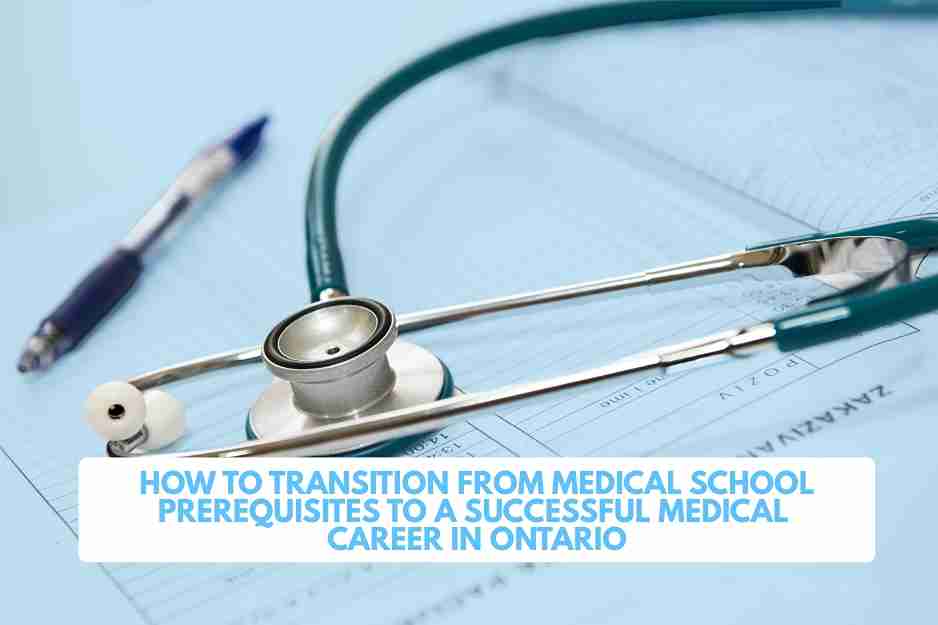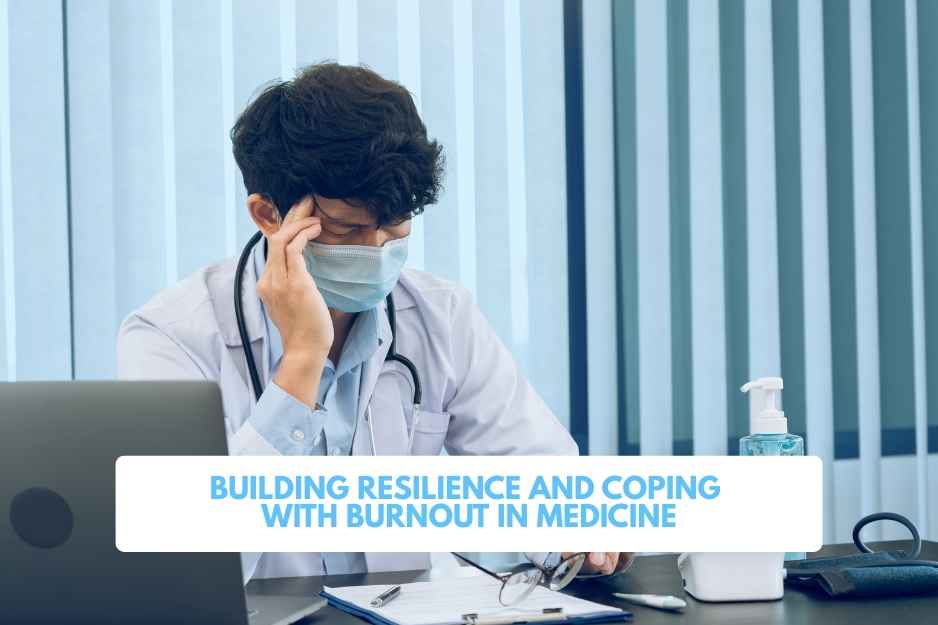Make sure to catch up on Part One!
Medicine and nursing are careers that can feel like ‘two peas in a pod’ in the clinical setting. But when it comes to making the leap from nursing to medicine, there are a lot more ‘hoops’ to jump through than one may expect. In fact, the difference in training requirements between medicine and nursing roles can be quite stark (and even surprising). As such, those in nursing who decide to make the leap to medicine may need to make a well-calculated plan to successfully ensure a safe landing!
As a follow-up to my first blog, which was focused on how to decide medicine is the right career switch for nurses, this blog will discuss what to do after that big decision to ‘leap to medicine’ has been made. Specifically, I want to share my top tips for conceptualizing, pursuing, and sticking with a plan to transition from nursing to medicine. This blog comes from a place of honesty and humility, as I made the leap to medicine from nursing after about a decade in the nursing profession. Certainly, I made all the mistakes and took all the wrong turns in my journey! Hopefully, if you are planning your own leap, these tips will provide a bit of helpful guidance.
The Dreaded Prerequisites
The first thing I did when I decided to seriously pursue medical training was I sat down and examined all the medical prerequisites for Canadian medical schools. As a nurse, you may be surprised at which prerequisites you have and what you don’t. Having healthcare experience is unfortunately not enough! As well, prerequisites have been known to change frequently, so it is best to keep an eye on programs of interest as you move through the medical school application process.
Now, the stringency of course prerequisites is not as high in Canada as it is in United States. However, nurses can still lack a few of the recommended courses for Canadian medical schools and the MCAT. A very common example of medical prerequisites that tend to be excluded from most nursing curriculum is chemistry and physics courses. For myself, as apart of enrolling at the University of British Columbia, had to take two English credits as a part of my medical application (as there was no English in nursing school when I went through). If you are just starting in a nursing program now and are thinking about medicine, you can also plan out your ‘rare’ elective courses to get prerequisites. I personally took physics and chemistry as electives in my nursing undergrad to ‘keep the door open’ to medicine in the future.
Garnering adequate prerequisites will be even more difficult if you are a nurse who did not graduate from an undergraduate program (aka. Registered/Licenced Practical Nurse or Registered Diploma Nurse). In these situations, college-based nurses may need to obtain an entire degree to move forward in applying to medicine. Which could work out well – in the sense that all the ‘recommended’ prerequisites for the MCAT could be ontained through a more traditional pre-med degree!
Making Time
So you may know what you have to do to create a strong medical school application, but do you have the time to do it? From experience, I can say there is so much expectation (and sometimes direct peer pressure) to continuously stay working as a nurse. Even more so now with the current nursing shortage! You can feel guilty taking time or leaving a position when you know ‘Your Team’ is always short. There is also lucrative financial incentive to work as a nurse, including overtime shifts, increased premiums, and bonuses for larger blocks of work if going abroad (Working as a nurse in the United States can come with a whole bunch of financial rewards!). In the end, all these things can chip away at your resolve and time to pursue medicine.
For me, I made this error in not laying away enough time to prepare for the MCAT. Every time I unsuccessfully wrote the exam, I would try to work full-time and aim to study before or after a 12-hour shift. In hindsight, this was a poorly conceived plan and made the exam unnecessarily challenging (only a nurse knows how difficult it can be to be productive after a night shift). I only had the success in writing the MCAT when I made the exam my full-time job for a two-month period. Gaining time from my employer through a temporary leave, and creating larger blocks of time away from family and friends was a huge part of my success.
Now a ‘leave’ from work may not be best for every nurse, but what I would recommend is sitting down and being honest with yourself about how much time you need to complete all the necessary components of your medical school application. Once you know how much time you need, fight to get that time back and fiercely protect it as you move through your medical ‘to-do’ list.
The MCAT
The largest blockade in my personal leap from nursing to medicine was no doubt the MCAT. It is my personal belief, especially as I continue to mentor nurses in their medical applications, that nurses generally do not do ‘well’ on the MCAT (I am not sure why other than to say we may see clinical questions differently, and we don’t always have all the prerequisites for this exam). This is not to imply nurses are not disciplined or motivated, and quite the opposite is true. For nurses, there is always a strong motivation to pursue medicine because there is often a daily reminder in our workplace that we want to become physicians! All of this is just to say that – don’t underestimate the MCAT if you are a nurse! It is a large, complicated, and (unfortunately) an important exam in your medical school applications. The better your exam score is, the better it is for your future goal of getting into medical school.
I can’t say there is one way to prepare for the MCAT for all nurses, but what I will say is stay focused (no matter how ridiculous or toilsome you find the MCAT). Each day, give yourself a strong reminder of why you are studying for this exam (ie. could be a particular patient scenario or a physician you aim to be like). With clinical experience under your belt, I am certain, nurses are among the few medical school applicants that can draw on the true realities of healthcare for substantial encouragement and impetus to chase their medical dreams through even the largest obstacles.
Finding Supports and Avoiding Disapproval
It may not come as a surprise to you, but social supports are an important part of pursuing medicine for everyone. Yet, garnering social support for nurses may be harder than one would think (especially considering we around people in medicine all the time!). No matter where you work in healthcare, there are many perceptions, biases, and hierarchies that can alter relationships within and between disciplines. Nurses, even those who are well-meaning, may have a hard time supporting one another through a leap from nursing to medicine. Drawing upon an example from my own life, I have had fellow nurses express to me that my desire to go into medicine exemplifies that I think less of the nursing profession or that I can’t handle the pressure of being at the bedside. Similarly, I have had medical colleagues discourage me from pursing medicine because it is a ‘dead end’ career, or question if I am ‘smart enough’ for medicine. Ultimately, the negative nature of this feedback within your social support groups can be detrimental to your motivation and desire to leap to medicine. As a result, I often recommend to nursing applicants that they feel no pressure in disclosing whether they are applying to medicine amongst healthcare colleagues. I only shared my own journey with colleagues once I had proceeded to the level of receiving interviews for medical school. I felt comfortable disclosing at this point because I felt I had a good chance of getting in, my application components were finalized, and any negative backlash only impacted me for a brief amount of time (and yes, people had negative things to say even once I got in!).
On the other hand, I did find incredible social supports outside of healthcare even before starting to study for the MCAT or take my prerequisite courses. These non-healthcare colleagues were incredible supports even though they understood nothing about healthcare or medicine, and I am forever grateful to them! In truth, who your social supports are really doesn’t matter, as long as they can see your potential and capacity to become a great physician. Sometimes keeping your social supports small, like within your family, amongst you and your partner, or with a couple close friends, is more than enough. Again there’s no one-size-fits-all approach to garnering social support and making the leap from nursing to medicine. I only urge you to select your supports carefully and ensure they truly have your best intentions at heart. Finally, there is no need to disclose or get the approval of anyone else in healthcare when applying to medicine! Only share one you feel ready and can trust that other person to honour your desires.


